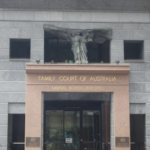Paying People Smugglers: Is it Ever Justified?

Stopping people from seeking asylum in Australia is an issue that has featured prominently in the political landscape over the past decade.
And although Labor and the Coalition don’t always agree about politics, they both seem intent on waging an ongoing war against those who seek asylum in Australia, with both parties pledging to implement stronger border security and “stop the boats”.
Although the Coalition has long spouted a policy of “turning back the boats”, Labor has generally opted to process asylum seekers offshore, pledging that “asylum seekers who come here by boat without a visa will never be settled in Australia.”
But explosive allegations this week suggest that Labor and the Coalition may be in cahoots in some of their boat-stopping measures, with the Indonesian government suggesting that people smugglers were paid handsome sums of money by both parties to turn back unseaworthy boats.
What’s The Story?
There’s a great deal of secrecy about what actually goes on behind the scenes in order to curb people smuggling, with successive governments refusing to shed light on the issue for fear of compromising border security or, worse still, cause a political backlash.
Last week, a prominent media outlet published articles suggesting that government officials had made individual payments of $5,000 USD to six crew members of an asylum seeker vessel in exchange turning the boat back to Indonesia.
Those allegations were flatly denied by Foreign Minister Julie Bishop and Immigration Minister Peter Dutton, but Prime Minister Tony Abbott stopped short of denying that the practice ever occurred, simply stating that the government “will do whatever is necessary, within the law, consistent with our standards as a decent and humane society to stop the boats”.
Such sentiments might have provided ammunition for the Opposition in the lead up to next year’s election – and, indeed, Labor criticised the government for its hand in paying people smugglers when the story first broke. But allegations then emerged that the Opposition had engaged in the same practice during the six years it was in office. Labor has denied those allegations, but has at the same time maintained that “it is unlawful for the Government or the opposition to divulge security or intelligence information”.
If the allegations are substantiated, it could be embarrassing for both parties, who have long demonised people smugglers and maintained that Australia’s asylum seeker policy must deter those considering making the journey to Australia in a “leaky boat”.
Both parties have frequently referred to the dangers of expeditions across treacherous waters in unseaworthy vessels, which are often overloaded with men, women and children seeking a better life in Australia. The boats are manned by callous crew members who work for “snakeheads” (ie leaders of the people smuggling operations) that charge desperate passengers thousands to make the journey to Australia.
But if it transpires that the government has provided a financial incentive to these crew members, there would be no real reason for them to stop the practice of people smuggling. Quite to the contrary, they would only be encouraged to continue such operations – being paid by both asylum seekers and the Australian government.
Is It Against the Law to Pay People Smugglers?
The suggestion that our own government may have been paying the same smugglers that they have been demonising has ruffled the feathers of even the most hard-hearted of voters.
Such a practice appears to be unethical and potentially inhumane, but is it against the law?
Various debates have been waged over the years about whether turning back the boats constitutes a breach of our international obligations. But the legality of paying people smugglers is another question entirely.
Supporting people smuggling is an offence under section 73.3A of the Commonwealth Criminal Code, which makes it a crime to:
- Provide material support or resources to another person or an organisation (the receiver); and
- Support or aid the receiver, or a person or organisation other than the receiver, to engage in conduct constituting the offence of people smuggling.
The maximum penalty is 10 years imprisonment and/or a fine of $170,000.
Whether the government’s alleged conduct amounts to “aiding” people smuggling is a matter of interpretation.
One prominent lawyer suggests that paying people smugglers to turn back their boats would be a breach of the section, but notes that the consent of the Commonwealth Attorney-General is required to prosecute the offence. Unsurprisingly, Attorney-General George Brandis has said that he would not give the required consent, which means that government officials who break the law could not be held accountable.
If a prosecution were brought, it might be defended on the basis that turning back the boats does not actually “aid” the receiver to engage in people smuggling itself. This is because section 73.1 of the Criminal Code says that the offence of people smuggling requires three discreet elements:
- That a person organises or facilitates the entry of another person into a foreign country, whether or not via Australia;
- The entry of the other person into the foreign country does not comply with the requirements of that country’s law for entry; and
- The other person is not a citizen or permanent resident of the foreign country.
Turning back a boat, it could be argued, does not facilitate entry at all – it does quite the opposite.
By any means necessary
There are some who have expressed the view that there is nothing wrong with paying people smugglers to turn back their boats because it not only prevents asylum seekers from coming into Australia, but saves a whole lot of money in housing and processing them offshore.
They, like Tony Abbott, believe that any and all legal measures should be taken to stop each and every boat from entering our shores.
The contrary economic argument, of course, is that paying people smugglers will encourage more people smuggling, thereby increasing enforcement costs and the number of boats coming towards our shores – some of which will inevitably make it through or, if the boats are doomed, be directed to closer places like Nauru.
Then there is the moral questionability of paying smugglers our hard-earned tax dollars, which may in some respects be likened to paying serious criminals like terrorists to cease the illegal conduct they are engaging in.
And then there are the dangers inherent in turning back rickety boats – putting innocent lives at risk. On top of all this is the moral reprehensibility of flatly refusing to process desperate men, women and children who may be genuine refugees and face persecution or other dangers upon return.






